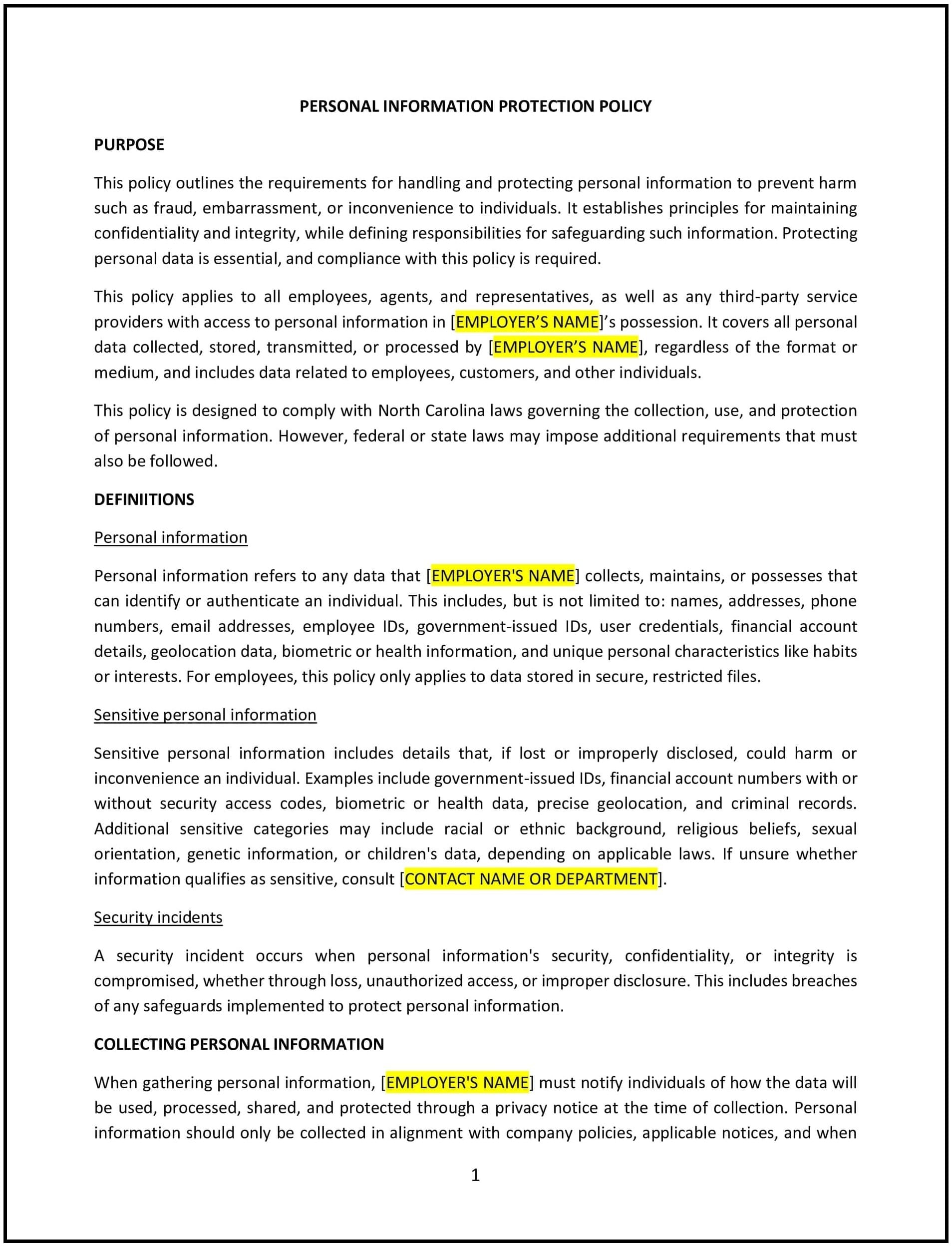Personal information protection policy (North Carolina): Free template
Got contracts to review? While you're here for policies, let Cobrief make contract review effortless—start your free review now.

Customize this template for free
Personal information protection policy (North Carolina)
A personal information protection policy helps North Carolina businesses safeguard employees’ and customers’ personal data, ensuring that the company handles, stores, and processes sensitive information in a secure and compliant manner. This policy outlines how personal information is collected, used, protected, and when it can be disclosed. It aims to minimize risks of data breaches, identity theft, and non-compliance with state and federal data protection regulations.
By adopting this policy, businesses can protect their reputation, strengthen compliance with privacy laws, and demonstrate their commitment to safeguarding personal information.
How to use this personal information protection policy (North Carolina)
- Define personal information: Clearly define what constitutes personal information, including names, addresses, social security numbers, financial information, and other sensitive data.
- Specify data collection practices: Outline how personal data is collected, including when it is necessary for business purposes and how employees and customers are informed about data collection.
- Establish data protection measures: Detail the security protocols used to protect personal data, such as encryption, secure storage, and access controls to prevent unauthorized access.
- Set data retention guidelines: Specify how long personal information will be retained and the process for securely disposing of data that is no longer needed.
- Reflect North Carolina-specific considerations: Ensure the policy aligns with North Carolina’s privacy laws, including regulations related to data protection, identity theft, and electronic records.
Benefits of using this personal information protection policy (North Carolina)
This policy provides several benefits for North Carolina businesses:
- Enhances data security: By outlining clear data protection measures, the policy reduces the risk of data breaches and ensures sensitive information is safeguarded.
- Promotes trust: Employees, customers, and partners will have greater confidence in the business when they know their personal information is being protected.
- Reduces legal risks: A well-defined policy ensures that the company complies with North Carolina’s privacy laws and federal data protection regulations, reducing the risk of legal action or fines.
- Improves operational efficiency: By setting clear guidelines for data collection, storage, and disposal, the company can manage personal information more effectively and securely.
- Strengthens company reputation: Businesses that prioritize personal information protection demonstrate their commitment to security and privacy, which enhances their reputation with stakeholders.
Tips for using this personal information protection policy (North Carolina)
- Communicate the policy clearly: Ensure all employees understand the importance of protecting personal information and the company’s specific protocols for handling data.
- Provide training: Offer regular training on data protection practices, privacy laws, and how employees can protect personal information in their day-to-day work.
- Monitor compliance: Regularly audit the company’s data protection practices to ensure that personal information is handled in accordance with the policy.
- Review the policy regularly: The policy should be reviewed annually to ensure it complies with North Carolina’s data protection laws and reflects any changes in business operations or data privacy regulations.